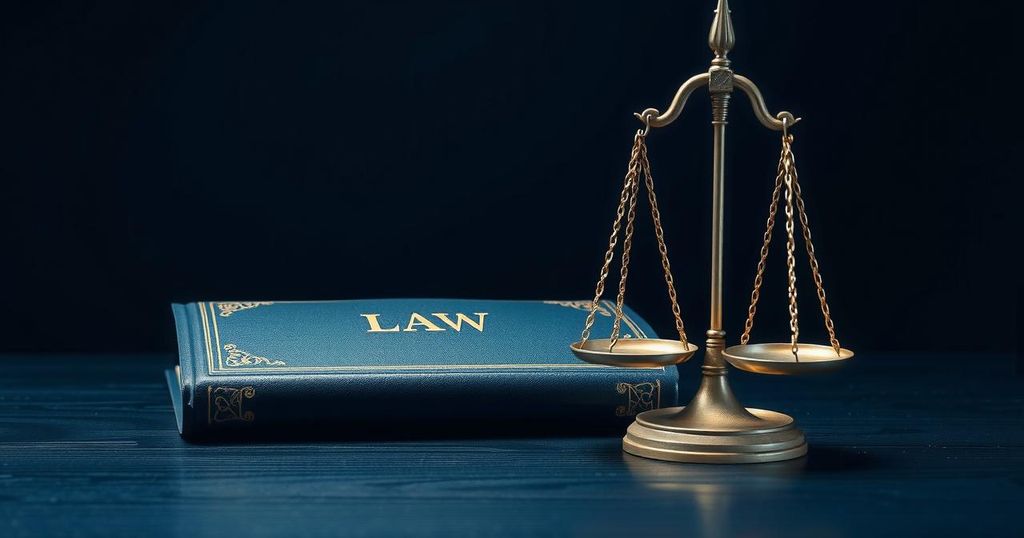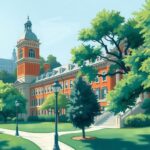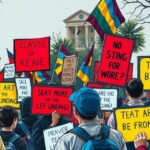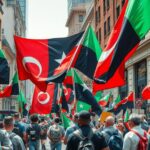Politics
BARNARD COLLEGE, CIVIL RIGHTS, COLLEGE, COLUMBIA, COLUMBIA UNIVERSITY, DEPARTMENT OF HOMELAND SECURITY AND IMMIGRATION POLICY, EDUCATION, HUMAN RIGHTS, JONAH E. BROMWICH, KHALIL, LAW, LOUISIANA, MARCO RUBIO, NEW YORK, NORTH AMERICA, SOUTH KOREA, STUDENT PROTESTS, TIMES, TRUMP, U. S, UNITED STATES, YUNSEO CHUNG
Clara Montgomery
Columbia University Student Yunseo Chung Files Lawsuit Against Deportation Threats
Yunseo Chung, a permanent resident and Columbia University student, is suing the Trump administration after immigration officials attempted to arrest her. Her involvement in pro-Palestinian demonstrations has led to scrutiny, echoing the rationale for the arrest of another university graduate. Chung’s case reflects the challenges faced by individuals engaging in political activism regarding immigration policies.
Yunseo Chung, a 21-year-old student at Columbia University and permanent resident, has filed a lawsuit against President Trump and high-ranking officials after facing potential deportation attempts by immigration authorities. Having lived in the United States since age seven, Ms. Chung has engaged in pro-Palestinian demonstrations, which she claims has led to scrutiny from Immigration and Customs Enforcement (ICE).
The Trump administration contends that Ms. Chung’s presence in the country obstructs its foreign policy efforts to combat antisemitism. This claim echoes the rationale provided for the recent arrest of another Columbia graduate, Mahmoud Khalil, who is currently detained in Louisiana.
While Ms. Chung is not considered a prominent figure in recent demonstrations, she was among several students arrested during protests at Barnard College. Despite the threats of deportation, she remains in the United States, although her legal representatives have not disclosed her specific location.
Yunseo Chung’s legal action against the Trump administration underscores the intense scrutiny faced by individuals involved in political activism. Her case reflects broader issues regarding immigration policy, particularly concerning those participating in demonstrations that challenge governmental foreign policy agendas. As these situations unfold, they raise critical questions about the rights and protections afforded to legal residents within the United States.
Original Source: www.nytimes.com








Post Comment